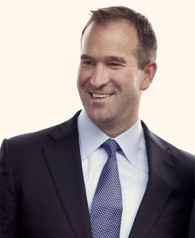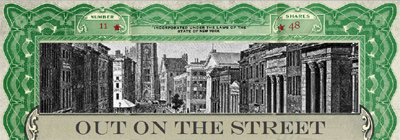The old Hong Kong saw had it that the three most important people in Hong Kong were the Chairman of the Hong Kong and Shanghai Bank, the Chairman of the Royal Hong Kong Jockey Club and the Governor, in that order. Times may have changed a bit since colonial days, but business is still king here. It is the essence of the place, its reason for the very existence of the city and it is still the sector that drives the city’s oligarchical form of government. So while the head of HSBC may no longer wield alone the unfettered power he enjoyed in days gone by, the financial sector as a whole certainly still does.

Which makes it particularly important that the last seven years have seen a quiet, yet incremental growth in the LGBT-friendly diversity policies operated by Hong Kong’s banks. When I first started writing for Fridae in 2009, no bank would allow me to write about them individually or to quote their representatives in the columns of Fridae. They were all far too closeted to allow their logos or even names to appear alongside advertisements for cute Japanese escorts or racy underwear. Ever so slowly I have seen this change, and the fact that you are reading this column is itself in part proof of that.
Hong Kong’s Interbank LGBT Forum, established as a body to link the banks’ diversity organisations, has gradually gained in confidence as it has grown bigger. More and more banks have joined it and have become, though usually very quietly, steadily more open about their LGBT activities. Sponsorship of the Hong Kong Lesbian and Gay Film Festival was followed by recruiting sessions for LGBT university students, by the appearance of banking contingents in Hong Kong’s Pride Parade and the next year by the fine sight of huge banners sporting bank logos, carried down Hong Kong’s main thoroughfares by the marchers.
While this was going on here, in the United States and then in Europe, the banking world has begun to come out in a far bigger way. CEO’s like Lloyd Blankfein of Goldman Sachs have started to campaign publicly for LGBT equality and have even spoken out in favour of same-sex marriage, not just because it is good for business, but also because they see it as a human right. When asked at one of the three Out on the Street Summits he’s attended whether Goldman Sachs had lost business because of his stance, Blankfein famously said that he didn’t care, adding that no one had yet been able to walk him through the case for why discriminating against anyone made good business sense.
Right in there amongst these changes on Wall Street has been advocate Todd Sears. Sears is a pretty amazing man. He emerged from Wall Street a few short years ago to spread the message that inclusive diversity policies make sense for business and he is using this message to build a global advocacy network in the financial industry. In 2011, he founded Out on the Street and held his first Summit in New York. He followed this up last year with another Summit in the States and another across the pond in London. Now he is in Hong Kong planning his first Asian Summit, scheduled for 24 October this year.
Sears tells audiences that he has been out at work since reaching Wall Street, but his first employment experience was not a good one. Overhearing his Managing Director call one of his colleagues a faggot, he left the company and went somewhere more welcoming. Later, though, his openness paid off, for at Merrill Lynch he was hired on the basis of the business plan he presented to focus on the LGBT sector, something not even contemplated at the time, but which eventually he grew to bring over US$1.5 billion in assets to his bank. He led diversity initiatives both at Merrill Lynch, where he was Head of Strategic Initiatives for the Office of Diversity, and at Credit Suisse, where he was Americas Head of Diversity & Inclusion.
Now from his independent base of Coda Leadership Consulting, which he founded and heads, he helps integrate diversity into business objectives. He works to improve the lives of employees whilst improving the performance of their companies. When he founded Out on the Street, six banks signed up as members. Now there are sixteen, all the big names of the western financial world. A win-win situation on Wall Street, where CEOs are now lining up to speak at his summits, but maybe not so rosy a prospect in Asia.
It is to establish that fact and to work out what benefit his Summits could bring to this region that he has been on a reconnaissance in the East. Here in Hong Kong he found himself running from meeting to meeting with many of the city’s great and good, including not only business leaders but also Dr York Chow, Chairperson of the Equal Opportunities Commission, and the Honourable Regina Ip, Legislative Councillor and founder of the New People’s Party.
On the evening of Monday 17 June, Sears was guest of honour at a dinner hosted by HSBC’s Regional Head of Commercial Banking, Noel Quinn, who is the senior executive sponsor in the East for the bank’s diversity network. The event was held in the Bank’s Turner Room atop its Main Building in Central, still as space-age a location as it was when designed by Norman Foster back in the early Eighties. Leaders of the international banking diversity sector were there that night, including Mark McLane, Managing Director and global Head of Barclays’s Diversity & Inclusion and Siân Dalrymple, Head of Compliance, North Asia and also a diversity leader for Deutsche Bank. Local diversity leaders Stephen Golden and Paul Choi of Goldman Sachs and Peter Sargant of Standard Chartered Bank represented Hong Kong. Mixing amongst the powerful were and Darrick Sampson and this writer representing the Pink Alliance.

Guests had been summoned to dinner to allow Sears to listen to as many expert views as possible to assess what the aims should be for the Asia Summit he is planning for 24 October in Hong Kong. Views were many and varied, including suggestions that the Summit should invite local corporate leaders, not just of the financial services, to speak and that it should also assemble a panel of the eminent to discuss why diversity matters to them from a human and from a business perspective. There seemed to be general agreement that it was time now for the financial sector to go public on the good work it has been doing in diversity since Goldman Sachs kicked off with its LGBT network here in 2005. It was time, many suggested, for the banks themselves to come out.
Golden and Choi hosted Sears for their own bank, Goldman Sachs, at a regional televisual conference in the bank’s offices in the Cheung Kong Center on 18 June, linking their diversity groups in Bangalore and Mumbai, Melbourne and Sydney, Singapore and Hong Kong, Japan, South Korea and China. The occasion was billed as ‘Engaging Allies’ and focussed on the need for the LGBT community to build networks of allies, not only of people who passively supported LGBT rights, but more so of those prepared to actually do something in furtherance of them, ‘to boldly be an ally’ as it was put by one of the executives featured in Out on the Street’s film that opened the session. Sears turned it another way: ‘the ally has to come out, too’. He had more time on this occasion to outline his vision of spreading the reach and depth of diversity organisations in Asia. He had seen dramatic changes, he said, in the short time he had been working in the field, to the extent that in a recent survey his organisation conducted, 20% of gay businessmen actually claimed that being gay was an asset to their work. Now some of the organisations that are members of Out on the Street have established ‘reverse mentoring’, where young LGBT employees mentor top executives who are twenty-five or thirty years their senior. This was what he wished now to bring to Asia.
The October conference promises to publicise the case for business diversity at a level not so far seen in Hong Kong, let alone in the rest of Asia. Sears aims it to be a truly Asian conference.
As Bruce Springstein and the East Street band put it in their eponymous 1980 song, ‘Out on the Street’:
When I'm out in the street
I walk the way I wanna walk
When I'm out in the street
I talk the way I wanna talk
Baby, out in the street I don't feel sad or blue
Baby, out in the street I'll be waiting for you.
We shall be here in Hong Kong in October waiting to see whether Sears can duplicate the success he has achieved in the West here on Asia’s Street.
